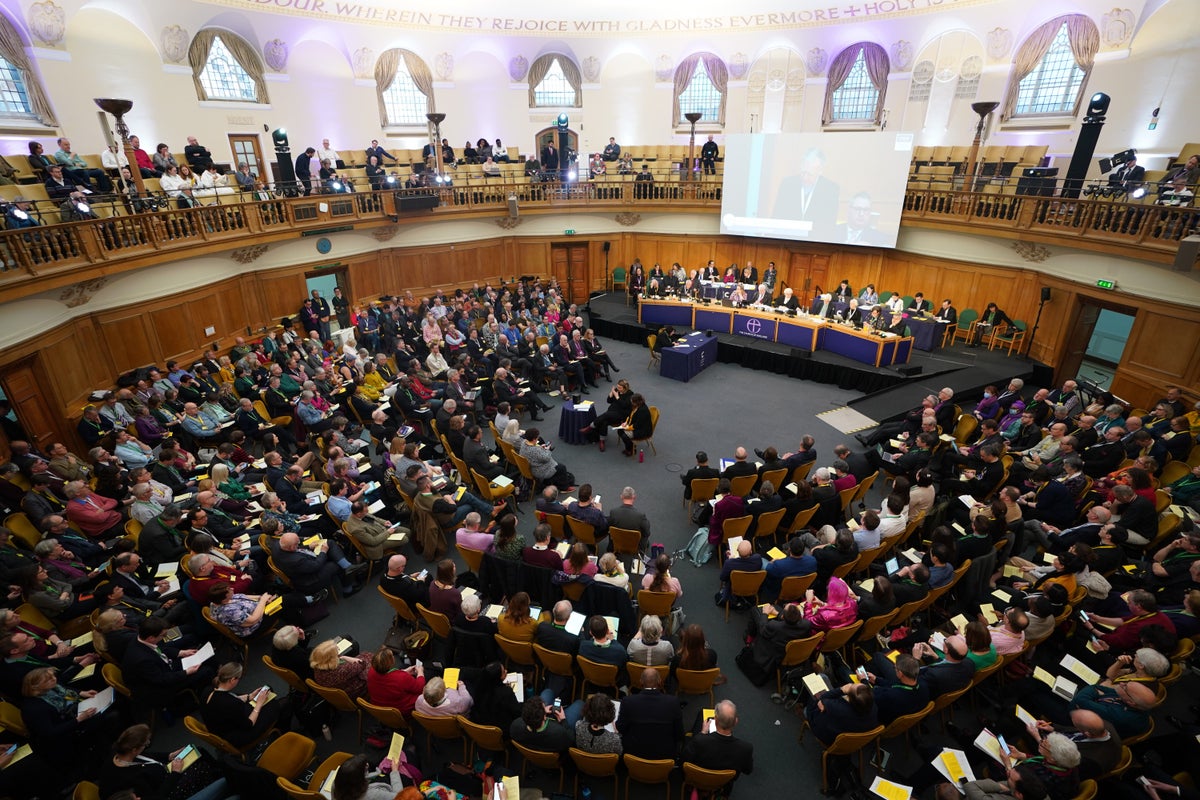
A new independent safeguarding approach for the Church of England would not be fully in place for at least another two years, proposals due to be presented next month confirm.
The General Synod, otherwise known as the Church’s parliament, will debate and vote on a new model in February, with the lead bishop for safeguarding acknowledging the need for “radical change”.
Synod will sit for its first session since the resignation of the archbishop of Canterbury Justin Welby last month following safeguarding failures.
Of course, change is difficult and we must be clear that the benefits of major change sufficiently outweigh the costs
He quit after pressure following a review which found Christian camp leader and prolific serial abuser John Smyth might have been brought to justice had Mr Welby formally reported him to police five years before the barrister’s death.
In standing down, Mr Welby also noted his “long felt and profound sense of shame at the historic safeguarding failures of the Church of England”.
The safeguarding debate in the Church has been a long-running one, and calls have also been made in recent months for Mr Welby’s temporary stand-in, Archbishop of York Stephen Cottrell to stand down.
Mr Cottrell has refused to quit after revelations emerged that a priest at the centre of a sexual abuse case was twice re-appointed under him while he was serving as Bishop of Chelmsford.
He has acknowledged things “could have been handled differently” but, previously appearing to reject calls to resign, has pledged to “do what I can” to bring about independent scrutiny of safeguarding in the Church.
He has previously insisted it was “not possible” to remove the priest in that case from office until fresh complaints were made in 2019.
Two so-called models for independent safeguarding will be presented to Synod, following reviews in recent years by former chairwoman of the national Independent Inquiry into Child Sexual Abuse (IICSA) Professor Alexis Jay, and barrister Sarah Wilkinson.
One, known as model four, would see all safeguarding officers currently working in dioceses, cathedrals and the national Church transferred to work for a new independent organisation.

A different option, known as model three, would see most national staff move to a new outside non-Church body, but other diocesan and cathedral officers remaining with their current Church employers.
Both options would see safeguarding work scrutinised by a second external body, but papers published on Thursday state it would take “a minimum of two years to legislate for a scrutiny body as a statutory body”.
The Church’s lead bishop for safeguarding, Bishop of Stepney, Joanne Grenfell said she had committed to make progress “with all possible speed” but also noted “the Wilkinson recommendation that ‘The set up of any new safeguarding body must not be rushed'”.
Ms Grenfell said she will back model four, describing it as “sufficiently radical to bring about the fundamental change we need”.
She said: “I believe that bringing together all our safeguarding colleagues into one external body with specialist line management and accountability is the best way to address the current gaps in provision.”
Warning of “resistance to change”, she said: “Of course, change is difficult and we must be clear that the benefits of major change sufficiently outweigh the costs.”
Synod, taking place from February 10-14, will also see members debate a motion on the Makin report into Smyth’s abuse, and another on new safeguarding codes of practice including guidance on managing allegations.
Ms Grenfell said: “There is, quite rightly, considerable interest in our safeguarding work and I will be leading a number of debates and sessions on these vital questions at Synod.
“In the light of the Makin review, it is essential that we recognise together the pain of all victims and survivors living with a legacy of abuse, while highlighting the recommendations and work already under way.
“The proposals on safeguarding independence are the product of a huge amount of work and feedback from across the Church including from victims and survivors and it is right that Synod now makes the decision on which model to pursue.”
Meanwhile, a further delay to the long-running wrangling over same-sex blessings in the Church has been confirmed.
While blessings for same-sex couples in civil partnerships and marriages were approved almost two years ago, there has been a failure to reach agreement on their use as part of standalone services.
An update will be given next month, but no formal proposals until “a later Synod”, likely after the July meetings.
Bishop Martyn Snow, the lead bishop for this topic, said: “I’m personally disappointed by the further delay, it’s not what I would’ve wanted but I’m still confident that we can get there.”







